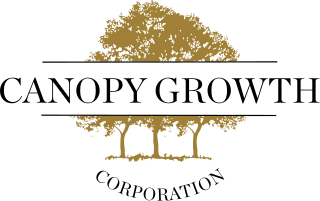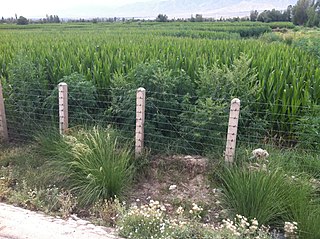Related Research Articles

The legality of cannabis for medical and recreational use varies by country, in terms of its possession, distribution, and cultivation, and how it can be consumed and what medical conditions it can be used for. These policies in most countries are regulated by three United Nations treaties: the 1961 Single Convention on Narcotic Drugs, the 1971 Convention on Psychotropic Substances, and the 1988 Convention Against Illicit Traffic in Narcotic Drugs and Psychotropic Substances. Since its descheduling in 2020, cannabis is classified as a Schedule I drug under the Single Convention treaty, meaning that signatories can allow medical use but that it is considered to be an addictive drug with a serious risk of abuse.

The Single Convention on Narcotic Drugs, 1961 is an international treaty that controls activities of specific narcotic drugs and lays down a system of regulations for their medical and scientific uses; it also establishes the International Narcotics Control Board.

Cannabis, also known as marijuana among other names, is a psychoactive drug from the cannabis plant. Native to Central or South Asia, the cannabis plant has been used as a drug for both recreational and entheogenic purposes and in various traditional medicines for centuries. Tetrahydrocannabinol (THC) is the main psychoactive component of cannabis, which is one of the 483 known compounds in the plant, including at least 65 other cannabinoids, such as cannabidiol (CBD). Cannabis can be used by smoking, vaporizing, within food, or as an extract.

In the United States, increased restrictions and labeling of cannabis as a poison began in many states from 1906 onward, and outright prohibitions began in the 1920s. By the mid-1930s cannabis was regulated as a drug in every state, including 35 states that adopted the Uniform State Narcotic Drug Act. The first national regulation was the Marihuana Tax Act of 1937.

Canopy Growth Corporation, formerly Tweed Marijuana Inc., is a cannabis company based in Smiths Falls, Ontario.

Cannabis in India has been known to be used at least as early as 2000 BCE. In Indian society, common terms for cannabis preparations include charas (resin), ganja (flower), and bhang, with Indian drinks such as bhang lassi and bhang thandai made from bhang being one of the most common legal uses.

Cannabis in Nigeria is illegal, yet the country is a major source of West African-grown cannabis, and ranked the world's third highest consumer of cannabis.

Cannabis in Nepal has been illegal since 1976, but the country has a long history of use of cannabis for Ayurvedic medicine, intoxicant and as a holy offering for Hindu god Shiva and continues to produce cannabis illicitly.

The cultivation and use of cannabis in the Philippines is illegal under Republic Act 9165 or the Comprehensive Dangerous Drugs Act of 2002. As the Philippines is a signatory to the 1961 United Nations Single Convention on Narcotic Drugs, Cannabis is classified as a Schedule I drug, which limits its use to medical and scientific purposes. Marijuana is the second most used drug in the Philippines, after shabu (methamphetamine), and most cultivation in the country is for local consumption. Cannabis is cultivated mostly in the remote, mountainous regions of Luzon and Mindanao.

Cannabis in Indonesia is illegal. Cannabis plants, all plants of the Cannabis genus and all parts of plants including seeds, fruit, straw, and processed cannabis plants or parts of cannabis plants including marijuana resin and hash are categorized as narcotics group. Drug offenders are subject to a minimum sentence of four years in prison if caught possessing it. Derivatives of medical and recreational cannabis are also illegal.

Cannabis has been cultivated in Japan since the Jōmon period of Japanese prehistory approximately six to ten thousand years ago. As one of the earliest cultivated plants in Japan, cannabis hemp was an important source of plant fiber used to produce clothing, cordage, and items for Shinto rituals, among numerous other uses. Hemp remained ubiquitous for its fabric and as a foodstuff for much of Japanese history, before cotton emerged as the country's primary fiber crop amid industrialization during the Meiji period. Following the conclusion of the Second World War and subsequent occupation of Japan, a prohibition on cannabis possession and production was enacted with the passing of the Cannabis Control Law.
The list includes and details significant events that occurred in the global history of national-level implementations of, or changes made to, laws surrounding the use, sale, or production of the psychoactive drug cannabis.

Cannabis in China is illegal except for industrial purposes (hemp) and some forms of medicine. Historically, cannabis has been used in China for fiber, seeds, as a traditional medicine, as well as for some ritual purposes within Taoism.

The Cannabis Act (C-45) of June, 2018 paved the way for the legalization of cannabis in Canada on 17 October 2018. Police and prosecution services in all Canadian jurisdictions are currently capable of pursuing criminal charges for cannabis marketing without a licence issued by Health Canada. The Supreme Court of Canada has held that the federal Parliament has the power to criminalize the possession of cannabis and that doing so does not infringe upon the Canadian Charter of Rights and Freedoms. The Ontario Court of Appeal and the Superior Court of Ontario have, however, held that the absence of a statutory provision for medical marijuana is unconstitutional, and to that extent the federal law is of no force and/or effect if a prescription is obtained. The recreational use of cannabis has been legalized by the federal government, and took effect on 17 October 2018.
Cannabis in Saint Vincent and the Grenadines was prior known to be illegal but is now decriminalized up to 2 ounces. Persons caught with 56 grammes or less of the drug will not be subject to incarceration. Instead, they will be fined a maximum of $500 and be subject to other measures including begin given educational material about cannabis; counselling and rehabilitative care. These provisions were among several amendments that were made to the Drugs Amendment Act (2018), which was passed in Parliament on July 25. In addition to only being a ticketable offense, the amendment provides for Vincentians to smoke the herb in the privacy of their homes and in places of worship of the Rastafarian faith without punishment. The amendment also said that the Minister may designate a list of public areas where the smoking of cannabis may be allowed. The country has correlating legal medical marijuana laws. Parliament on December 11, 2018, passed two Acts, one which establishes a Medical Cannabis Industry in St Vincent and the Grenadines and the other which offers amnesty for traditional marijuana growers. The Vincentian Parliament passed legislation to protect the intellectual property of breeders of new plant varieties in St. Vincent and the Grenadines (SVG), the Plant Breeders’ Protection Bill, 2019. It sets up the jurisprudential framework within which these persons will be able to accrue the rights, how these rights will be protected, how they will be published so that persons in the entire society, in the court and globally, can be aware of the hard work which was done, the agriculture minister said. Under the law, a person must obtain the authorization of a grantee with respect to propagating material of the protected variety, to produce or reproduce, condition the material for the purpose of propagation, offer the material for sale, to sell the material, import or export the material, or stock the material for any of the previous purposes. Regarding infringement of plant breeders’ rights, the following acts are exempt: an act done privately for non-commercial purposes, an act done for experimental purposes, or an act done for the purpose of breeding other plant varieties. The law allows for compulsory licenses where a person may apply to the court for the grant of a compulsory license to exploit a protected variety in SVG. Subject to terms that the court thinks fit, the court may make an order for the grant of compulsory licenses if it is satisfied that the grant of the compulsory licenses is in the public interest. Offense under the law include falsification of register and falsely representing a plant variety as a protected variety. The law also orders the registrar to publish applications for plant breeders’ rights, proposed and approved denominations, withdrawals of application for plant breeders’ rights, the rejection of applications for plant breeders’ rights, any grant of a breeders’ right, any change in the breeder or the agent in respect of a plant variety, lapses of plant breeders’ rights, any invalidation or revocation of a plant breeder's rights, the licenses in relation to plant breeders’ rights, where applicable. Cannabis is widely grown illicitly on the island and is the nation's most valuable agricultural product. Saint Vincent is the most prolific producer of cannabis in the Caribbean, other than Jamaica.
Cannabis in the Democratic Republic of the Congo is legal for industrial, medicinal and scientific use. It continues to be illegal for recreational use.

VIVO Cannabis Inc(formerly ABcann Global) is a Canadian licensed cannabis producer, headquartered in Napanee, Ontario. Prior to being acquired by MediPharm Labs Corp., VIVO traded on the Toronto Stock Exchange as VIVO.
DNA Genetics is a cannabis company that cross breeds different strains of the cannabis plant. It was founded by Don Morris and Aaron Yarkoni. The company also sells merchandise, apparel, and accessories. Morris and Yarkoni also work as consultants for other professionals in the industry. The company employs 40 employees in California, Amsterdam, and Canada.
References
- 1 2 "Cannabis in Lesotho". Sensi Seeds. Retrieved 2 August 2018.
- ↑ Jean Grugel; Daniel Hammett (10 June 2016). The Palgrave Handbook of International Development. Palgrave Macmillan UK. pp. 408–. ISBN 978-1-137-42724-3.
- ↑ Isidro Marín Gutiérrez (April 2010). Cannabis: el movimiento cannábico en España. Popular. ISBN 9788478844654.
- 1 2 3 Alain Labrousse; Laurent Laniel (29 June 2013). The World Geopolitics of Drugs, 1998/1999. Springer Science & Business Media. pp. 246–. ISBN 978-94-017-3505-6.
- ↑ Lesotho Just Granted Africa's First Legal Marijuana License - OkayAfrica
- ↑ "Aphria Forms Landmark Venture with South African Company Verve Group of Companies".
- ↑ "Lesotho attracts another major medical cannabis investment". 21 March 2018.
- ↑ "Canopy Growth Corporation announces entry into the African market with acquisition of Daddy Cann Lesotho".
- ↑ "Marijuana & Cannabis News, Reviews & Reports".
- ↑ "Halo Collective to Expand Globally and Acquire Bophelo Bioscience". www.businesswire.com. 2019-06-17. Retrieved 2019-07-23.
- ↑ United Nations: International Narcotics Control Board (1 February 2007). Report of the International Narcotics Control Board 2006. United Nations Publications. pp. 38–. ISBN 978-92-1-148218-8.[ permanent dead link ]
- ↑ Graeme R. Newman (19 October 2010). Crime and Punishment around the World [4 volumes]: [Four Volumes]. ABC-CLIO. pp. 113–. ISBN 978-0-313-35134-1.